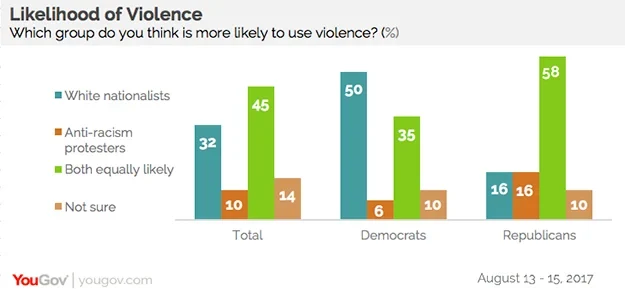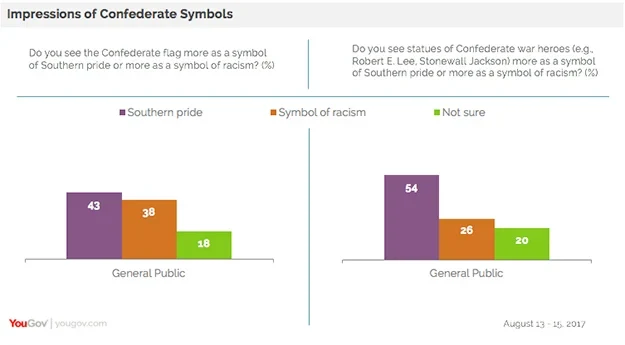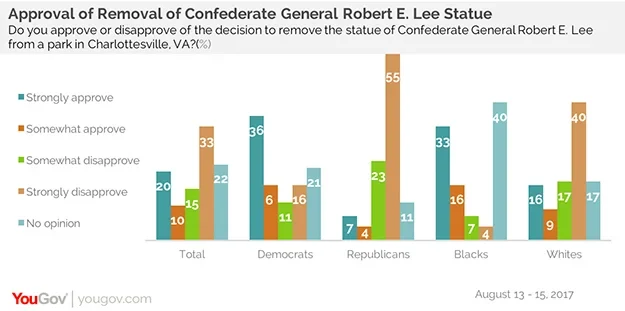The white nationalist demonstration and the counter-protests in Charlottesville, Virginia brought conflict on the streets and to the Presidency, and in the latest Economist/YouGov Poll, Americans have mixed reactions. Many do indeed see violence on both sides, as President Trump expressed in his first statement and reiterated in his Tuesday comments. There is significant opposition to removing the Confederate statue that led to the white nationalist demonstration there.
The poll was conducted after the weekend turned deadly, when a car drove into a group of counter-protesters. But many Americans see both sides in Charlottesville – the white nationalist protestors and the anti-racism counter-protesters – as equally likely to be violent.

Democrats are more likely to attribute violence to the white nationalist protestors, while are more likely to blame Republicans both sides.
And there is little support for the protestors in the poll. Just 7% say they have a favorable opinion of white nationalists, and even fewer are favorable towards neo-Nazis and the Ku Klux Klan. Those with favorable opinions make up a miniscule proportion of Trump’s voters. But many do not equate the Confederate flag or the statues representing heroes of the Confederacy with racism. Americans divide closely on whether the Confederate flag represents Southern pride or represents racism, and even more ascribe positive connotations to statues of those who fought for the Confederacy in the Civil War.

A majority of white Americans see the Confederate flag as a sign of Southern pride, while nearly two-thirds of African-Americans see it as a sign of racism. The racial gap is especially large in the South. By 62% to 28%, Southern whites say the flag is a symbol of Southern pride; by 68% to 9%, Southern blacks say it is a symbol of racism.
There has, however, been a change in how Americans view the Stars and Bars over the years. In 1992, the Gallup Organization found 69% calling the flag a symbol of Southern pride, 26 points higher than say so today. Just 22% said it was a symbol of racism in 1992.
Public identification of these symbols with Southern pride helps explain why there is opposition to the removal of the Charlottesville statue of Lee. Nearly half disapprove, and there are significant differences by party and by race.

For full results, see toplines or tab report.









